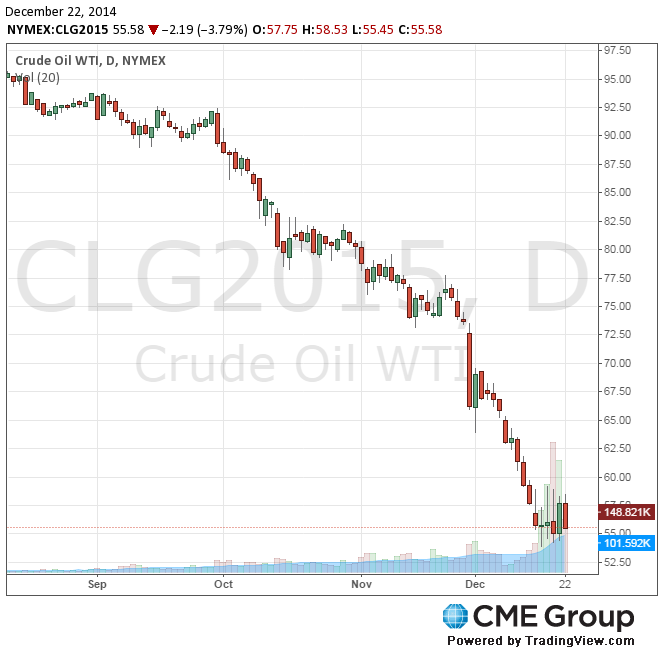- Оil fell
Notícias do Mercado
Оil fell
Crude oil fell, extending a fourth weekly decline on concern OPEC's refusal to cut production will worsen a global glut.
Saudi Oil Minister Ali Al-Naimi said OPEC's biggest producer will seek to maintain market share and that global demand growth this year was slower than expected. Iraq plans to boost its production next year, Oil Minister Adel Abdul Mahdi said. Trading volatility stayed at the highest level in more than three years.
"Saudi Arabia is not willing to give up market share," said Kyle Cooper, director of commodities research at IAF Advisors in Houston. "With the U.S. production trajectory intact certainly in the next few months, it's going to be a fight. It certainly looks like oil is heading toward $50."
Oil has slumped about 21 percent since OPEC decided against cutting its production target last month, prompting a plunge in the value of currencies from the Russian ruble to the Norwegian krone. Prices have tumbled by half since June amid surging production and slower-than-expected demand growth. Output in the U.S. is the highest in three decades.
Brent for February settlement dropped 77 cents, or 1.3 percent, to $60.61 a barrel at 10:57 a.m. New York time on the London-based ICE Futures Europe exchange. The volume of all futures was 23 percent below the 100-day average. The European benchmark crude traded at a premium of $4.65 to West Texas Intermediate. Prices have fallen about 45 percent this year, set for the largest drop since 2008.
WTI for February delivery fell $1.27, or 2.2 percent, to $55.86 on the New York Mercantile Exchange with volume 2.1 percent above the 100-day average. The U.S. benchmark is down about 43 percent this year.
